

.jpg)
The ‘My voice, My choice’ resolution is adopted by a majority of the EU parliament. A Christian MEP says “it is painful to see that the majority of the European Parliament does not recognise that unborn life need protection”.
.jpg)
The cost of living and the defence of Europe are the issues that most concern citizens, but priorities vary from country to country. How should Christian politicians in the European Parliament act? We asked the European Christian Political Party.
.jpg)
The Court of Justice of the EU has ruled in favour of two men who married in Germany but whose legal union was not recognised in Poland.
.png)
A new report on French television warns of the influence of evangelicals in European politics. Julia Doxat-Purser responds based on her decades of experience in political dialogue in Brussels.
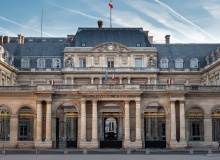
The highest court for disputes against the state rejected a request from a pornographic distributor to remove age verification measures.
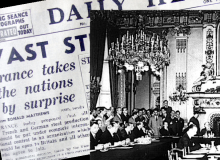
Headlines the world over last Friday announced the new pope, Leo XIV. Headlines 75 years ago on May 10, 1950, announced a new audacious plan for peace: ‘France takes the nations by surprise’, ‘Schuman bomb’.
.jpg)
Ahead of Sunday’s elections, the Protestant, Catholic and other churches ask to “vote for parties that stand up for our democracy”. Alice Weidel’s AfD party rises in the polls amid tough immigration debates.
.jpg)
A Ukrainian evangelical leader calls on Europeans to “take primary responsibility” in the resolution of the conflict.
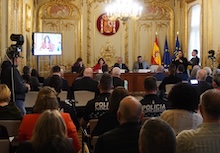
The federation of Spanish municipalities seeks to bring awareness-raising, training and dialogue with faith groups in local contexts to Europe. It is a two-year EU-funded project in collaboration with universities.
.jpg)
The latest Eurostat data show that those with children at home consider themselves more satisfied than average. Young people are more positive than older people.
.jpg)
The new Brussels representative of the European Evangelical Alliance shares her vision in an interview. “Evangelical Christians are called to balance religious freedom while maintaining authentic expressions of biblical faith”, she says.
.jpg)
We must call on Europe to make a critical assessment of the results of its policy of renouncing the biblical worldview. We must offer hope for revitalisation.
.jpg)
The annulment of the presidential election won by the pro-Russian candidate leads to protests and uncertainty. An interview with Daniel Fărcaș, evangelical professor of philosophy.
.jpg)
A new survey shows that most countries see Donald Trump with good eyes. Evangelical Focus asked analysts why Europe has become so isolated and what it means for relationships between evangelical Christians on a global level.
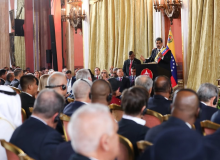
He compared himself to the biblical King David, without mentioning God or Jesus at any point in the ceremony, which was opposed in the streets by thousands.

Jesus talked of wheat and tares growing up together. Here is a random sample of both in the last 25 years.
.jpg)
In the last 15 days of August alone, 3,220 arrived in the Canary Islands from Africa risking their lives in small boats. Noemi Mena, an expert on migration, believes there are no solutions without solidarity between regions and long-term planning.
.jpg)
The EU passes a groundbreaking “Artificial Intelligence Act”. It bans ‘social scoring’, emotional recognition at the workplace, and “deceptive techniques that distort behaviour”.
.jpg)
The National Council of Evangelicals in France calls to work to make sure “divisions do not find their way into our communities”. Thierry Le Gall explains why there is a “divorce” between President Macron and Bible-believing churches.
.jpg)
Christians who trust in the lordship of Jesus Christ do not have a strong political influence. But what we do have, and probably underestimate, is a hope for the future of Europe.
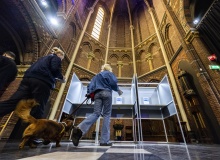
How can or should churches respond to the upsurge of nationalism in general, and in particular the way in which it plays a key-role in populist movements?
.jpg)
The Evangelical Alliances in Sweden, Austria, Germany and Spain offer resources to give reasons to vote for the European Parliament, on 6-9 June.
.jpg)
So much has changed since the last European Parliament election in 2019, but one thing that hasn’t changed is the influence of nationalism. If anything, it is a bigger issue in 2024 than it was in 2019 or back in 2010.
.jpg)
Christians may vote for different political parties but there is great significance in praying together in humility and unity for our nations and our continent. Here are some suggestions.
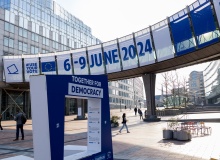
No matter what some candidates might tell you, there are no easy fixes to complicated issues. We trust that this list of questions will help you in your preparations for the European elections.

Las opiniones vertidas por nuestros colaboradores se realizan a nivel personal, pudiendo coincidir o no con la postura de la dirección de Protestante Digital.